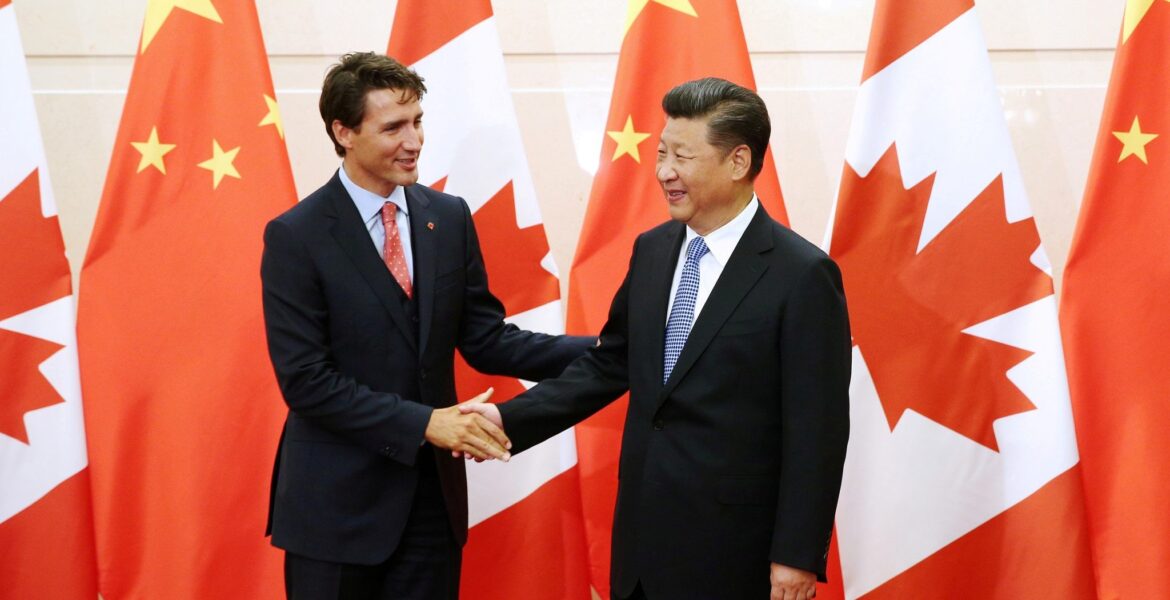Recent revelations of China's attempts to interfere in Canadian elections have not only shocked the nation but have also laid bare significant failures in Prime Minister Justin Trudeau's leadership. The eerie parallels between China's influence tactics in Taiwan's elections and its covert operations in Canada serve as a stark reminder of the fragility of democratic processes when leadership fails to confront external threats with resolve and transparency.
In the context of Taiwan's democratic landscape, China's modus operandi is a cautionary tale for Canada. The Chinese Communist Party (CCP), driven by its relentless pursuit of regional hegemony, has consistently sought to undermine Taiwan's sovereignty and democratic values through a dual strategy of coercion and influence operations. In the lead-up to Taiwan's 2020 elections, China's overt attempts to sway public opinion spectacularly backfired. Instead of capitulating to Beijing's demands for adherence to the so-called "1992 Consensus," which asserts that there is only "one China," Taiwanese voters delivered a resounding mandate for President Tsai Ing-wen and her pro-independence Democratic Progressive Party (DPP). China's heavy-handed approach, coupled with its crackdown in Hong Kong, fueled a groundswell of support for Taiwan's democratic ideals and independence.
Similarly, recent revelations of China's clandestine interference in Canadian elections have sent shockwaves across the country. Reports of Beijing's attempts to meddle in the electoral process, including through influence operations and covert funding, have raised serious concerns about the integrity of Canada's democratic institutions.
China has developed a habitual pattern of interfering in the sovereignty of other nations as part of its broader geopolitical ambitions. Employing a range of tactics, China seeks to exert influence and control over foreign governments, undermining their autonomy and democratic processes. These tactics often include covert operations, such as cyber espionage and disinformation campaigns, aimed at manipulating public opinion and sowing discord within target countries. Additionally, China leverages its economic clout to coerce governments into aligning with its interests, using trade agreements and investment deals as tools of influence. Furthermore, China employs a strategy of military intimidation, particularly in disputed territories, to assert its dominance and expand its sphere of influence. Overall, China's habitual interference in the sovereignty of other nations reflects its aggressive pursuit of regional and global power, posing a significant challenge to the principles of democracy and self-determination.
China employs a diverse array of manipulative techniques to sway the decisions of other nations, often bending them to align with its own geopolitical interests. One such technique involves economic coercion, where China leverages its economic power to extract concessions or compliance from other countries. This can manifest in various forms, including trade sanctions, investment incentives, and debt diplomacy. By offering lucrative deals or threatening economic reprisals, China aims to influence the policies and actions of foreign governments in its favour.
Trudeau's Leadership in the Crosshairs: A Story of Indecision and Weakness
Amid mounting evidence of Chinese interference, Prime Minister Justin Trudeau's leadership has come under intense scrutiny. Trudeau's initial reluctance to acknowledge the gravity of the situation and failure to take decisive action has fueled accusations of indecision and weakness. Unlike Taiwan's proactive response to Chinese meddling, which included robust countermeasures and a commitment to defending democratic values, Trudeau's handling of the issue has been marked by equivocation and evasion. Despite mounting pressure from opposition parties and civil society groups, Trudeau's government initially downplayed the extent of China's interference, opting instead for a strategy of deflection and denial. Trudeau's failure to confront China's meddling head-on reflects a broader pattern of leadership deficiencies, characterized by a lack of resolve and transparency. His reluctance to launch a public inquiry into foreign interference, coupled with his government's tepid response to mounting evidence of Chinese meddling, has eroded public trust and confidence in his leadership.
The Implications of China's Meddling: A Wake-Up Call for Canada
The implications of China's interference in Canadian elections extend far beyond the electoral process. At its core, China's covert campaign represents a direct assault on Canada's sovereignty and democratic values. By seeking to manipulate the outcome of elections through covert means, China undermines the very foundation of Canadian democracy and threatens the integrity of the electoral process. Trudeau's failure to effectively counter China's meddling not only exposes the vulnerabilities of Canada's democratic institutions but also raises questions about his ability to lead in times of crisis. As Canada confronts the fallout of Chinese interference, Trudeau must demonstrate decisive leadership and take concrete steps to safeguard the country's democratic institutions.
In the face of growing threats to Canada's democratic institutions, Trudeau must rise to the occasion and demonstrate unwavering resolve in confronting external adversaries. This includes strengthening cybersecurity measures, enhancing collaboration with international allies, and holding those responsible for meddling to account. Moreover, Trudeau must prioritise transparency and accountability in addressing the issue of foreign interference. By launching a comprehensive public inquiry into China's meddling in Canadian elections, Trudeau can demonstrate his commitment to defending Canada's sovereignty and upholding the principles of democracy. Ultimately, the challenge of confronting foreign interference requires bold leadership and unwavering resolve. As Canada navigates the complexities of the modern geopolitical landscape, Trudeau must rise above partisan politics and unite the country in defense of its democratic values. Anything less would be a betrayal of the trust placed in him by the Canadian people and a capitulation to the forces of authoritarianism and oppression.
REA MORE: European politicians are increasingly using TikTok despite rising security fears.


